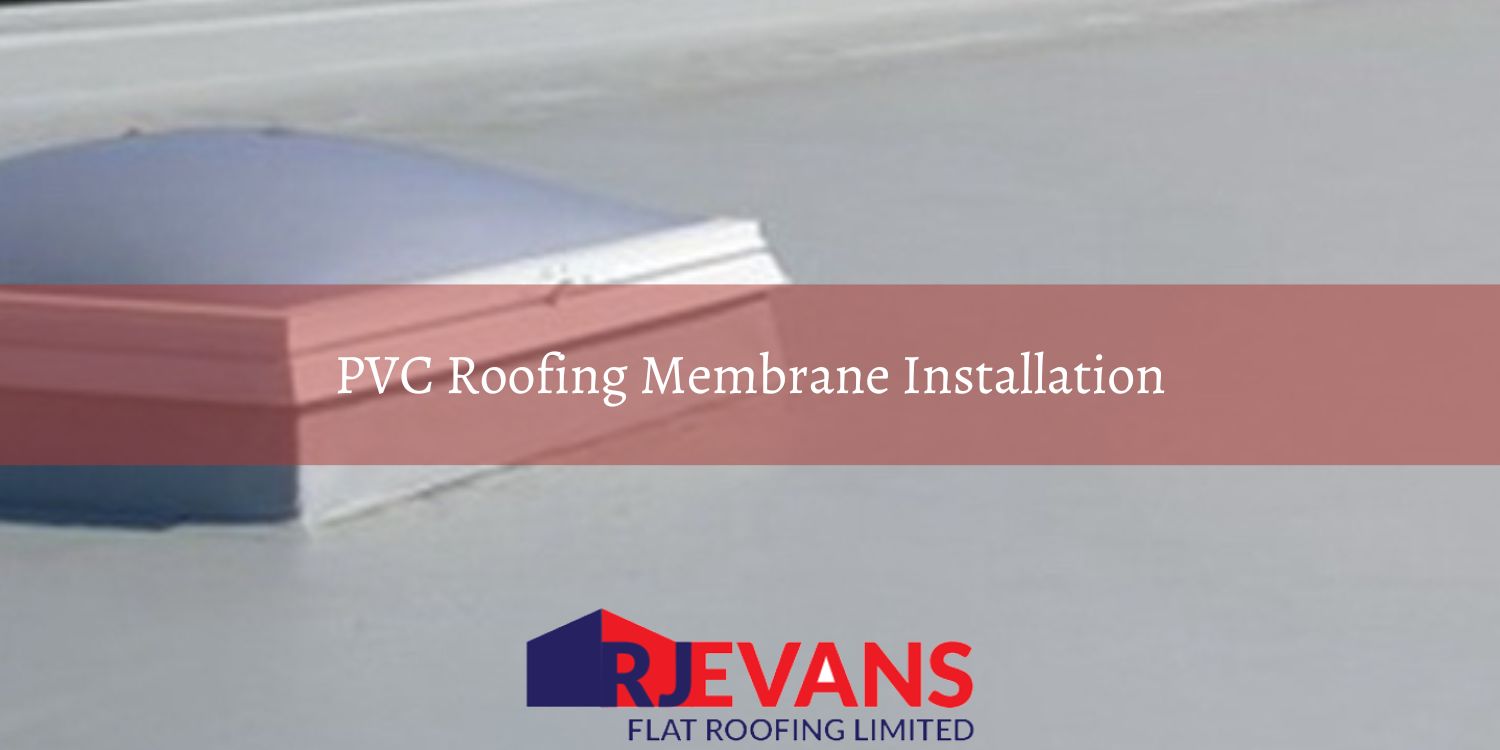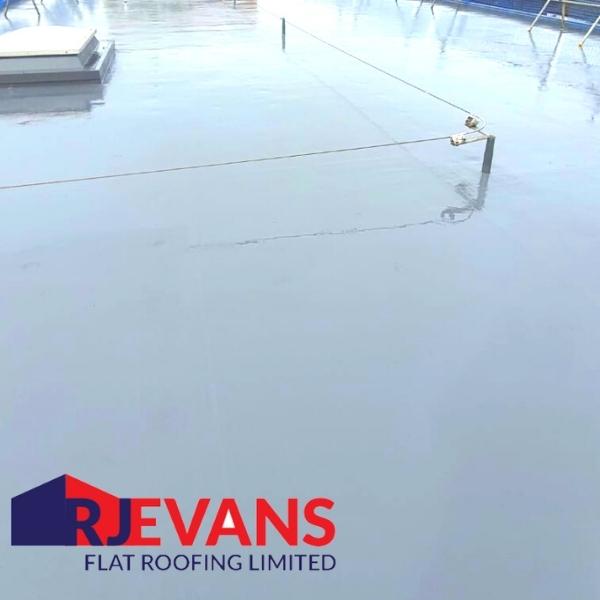I agree Our site saves small pieces of text information (cookies) on your device in order to deliver better content and for statistical purposes. You can disable the usage of cookies by changing the settings of your browser. By browsing our website without changing the browser settings you grant us permission to store that information on your device.

PVC roofing membrane installation involves the process of applying a single-ply membrane made of polyvinyl chloride (PVC) to create a durable and waterproof barrier for the roof of a building. PVC roofing membranes are used to waterproof flat roofs on both commercial and industrial buildings. PVC roofing membranes have excellent waterproofing properties with an excellent reputation for resistance to UV radiation, chemicals, and fire.
During the installation process, PVC membranes are typically mechanically attached or adhered to the substrate of the roof. This provides the building below with a seamless and watertight barrier. The membrane sheets are heat-welded together using seams and flashings. This results in no gaps being left in the PVC membrane resulting in no weak points where water ingress can occur. PVC roofing membrane installation will provide a long-lasting, energy-efficient, and low-maintenance roofing solution. Such roofs can withstand the challenges of even the most extreme weather. However, installation by a quality contractor is a must if you want to ensure you PVC roofing membrane beenfits from the maximum lifespan possible.
At RJ Evans, we specialise in the installation of high-quality PVC roofing membranes, providing long-lasting protection for flat roofs in both commercial and residential projects. Our expert team ensures precise installation to deliver durable, energy-efficient roofing solutions. For more information or to request a quote, please reach out via our contact form or call us on 01277 375 511. One of our friendly team members will be happy to assist you.

A PVC flat roof is a single-ply roofing system made from Polyvinyl Chloride (PVC) membranes, composed of ethylene and chlorine, derived from processed petroleum, natural gas, and salt. This roofing system is widely used for both residential and commercial flat roofs, including new constructions and refurbishment projects. According to the Single Ply Roofing Association (SPRA), PVC membranes are highly durable and flexible, making them ideal for large roofing areas like warehouses, as well as smaller, more intricate roof designs. These membranes typically come in thicknesses of 1.2mm, 1.5mm, and 1.8mm, and widths of over 1 or 2 metres, allowing for fewer seams compared to traditional felt roofing systems.
PVC flat roofs are installed by mechanically fastening, adhering, or ballasting the membranes to insulation, forming a waterproof protective layer over the building. The installation process uses heat welding, a flame-free method that is considered safer than those involving open flames. This roofing material is recognised for its resistance to chemicals, grease, and fire, contributing to its long lifespan, which typically ranges from 15 to 25 years, as long as it is installed by skilled professionals who are approved by trade associations like SPRA. Improper installation can reduce both the lifespan and effectiveness of the roof.
While PVC roofing offers notable strength and longevity, it does have some weaknesses. According to industry experts, the material is susceptible to puncture from sharp objects, such as dropped tools, loose screws, or gravel, which can cause leaks if not addressed quickly. However, when installed and maintained correctly, PVC flat roofs provide durable, long-term protection and offer energy efficiency due to their reflective properties, which help reduce cooling costs.
• Very fast roof construction
• PVC roofing is relatively cost effective.
• A safe and flame-free construction
• Single ply offers a good thermal performance using thermally efficient insulation
• Cold bridging is not a problem and is eliminated by use of thermally broken fixings
• PVC flat roofing is easy to repair. Typically, a patch is welded over the damaged area.
• Preformed detailing to suit all designs
• Links easily to other elements in the construction
• Is available in many colours if required
• It offers a good refurbishment solution.
• PVC membranes are a lightweight waterproofing solution
Durability is a key characteristic of PVC. It started gathering pace in the UK to the 1970’s, so it has proven durability over the long run. Lifespan depends on workmanship factors and exposure to UV rays. South facing roofs will deteriorate faster than North facing roofs. Having a good maintenance programme in place is also a good idea as it will maximise the lifespan of the roof. UV rays shining directly on the roof can degrade the adhesives quickly over time.
Once the seams of PVC roofing systems are affected by UV light they start to become brittle and break down. This makes them vulnerable to leaks. If there’s a puncture, tear, or other damage to the roof, the UV rays coming into the adhesive layer can cause more damage with the adhesives deteriorating. A PVC roofing membrane is thermoplastic. This means at some point it will begin to degrade and break down as it's heated up. This can be accelerated by prolonged exposure to sunlight. Once the roof is exposed to a certain amount of sunlight it will no longer be UV stable. The UV resistance of a PVC roof can be improved by applying a solar reflective coating.
Additionally, PVC contains dangerous chemical additives including phthalates, lead, cadmium, and/or organotin, which have been linked to child health problems. These toxic additives can leach out or evaporate into the air over time, posing unnecessary health risks to children.
PVC roof systems have many advantages with the main vulnerability being the seams in PVC. This vulnerability is not unique to PVC membranes, any roof with seams has a vulnerability to leaks. Every single seam on a PVC single ply roof is a potential weak point. Before choosing a PVC roof, modern PU liquid roofing systems should be explored as they offer the same advantages as PVC but, provide better detailing and allow for a totally seamless finish. PU liquid system are particularly effective for flat roofing refurbishment projects.
If you would like advice or further information about PVC roof membranes, a quotation for PVC single ply roofing. Or if you need any help or advice about PVC roof repair or maintenance, please get in touch. You can do this through our contact form or call us on 01277 375 511. One of our friendly team of PVC single ply roofing experts will be delighted to help you.
.